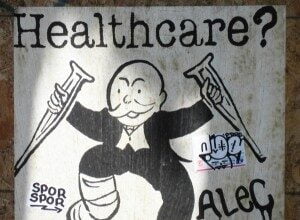Younger, healthier patients would be more likely than older, sicker ones to get the best kidneys if a new proposal by UNOS, the US’ organ transplant network is accepted. The proposal would supersede an existing first-come, first-served policy. It is designed to match-up the life expectancies of patients with the expected functional life of donated organs.
According to the proposal by the United Network for Organ Sharing, recipients and donor organs will be graded. The top 20% of patients and kidneys—based on age and health—will be placed in separate pools such that patients with the longest life expectancies will receive the best kidneys. The other 80% will be assigned to a separate a pool from which UNOS will match recipients and donors such that the age difference between the two is no greater than 15 years. For example, a 60 year-old person could only receive a kidney from donors who are between the ages of 45 and 75.
“Right now, if you’re 77 years old and you’re offered an 18-year-old’s kidney, you get it,” Richard Formica, a member of the UNOS panel that penned the new proposal said in an interview. “You’ll die with that kidney still functioning…a 30-year-old could have gotten that kidney and lived with it to see his kids graduate college.”
The new proposal would affect the 90,000 or so people that are currently on waiting lists for donor kidneys. In 2009, 10,442 kidney transplants were performed using organs from deceased individuals. An additional 6,387 procedures involved live donors who typically specify the recipient. Nearly 5,000 people die while waiting for a kidney transplant.
Many transplant surgeons and medical ethicists support the proposal. Arthur Caplan, a leading bioethicist at the University of Pennsylvania reflected this sentiment as follows: “If it’s a choice between saving grandpa or granddaughter, I think you save granddaughter first.”
However, it’s less clear that kidney transplant patients, certain lobbying groups and lawmakers will embrace the proposal. Older patients are going to have a hard time getting a kidney if the proposal takes effect, for example. As University of Chicago ethicist Lainie Friedman Ross told the New York Times, “Under this policy, if you’re 65, you might as well give up before you even get on the wait list.”
In addition, the new proposal ignores gaping geographic disparities in organ donation rates Patients in Chicago and New York wait up to several years longer than those on the kidney waiting list in Florida because of this problem.
Currently, UNOS maintains a computer network that links all organ procurement organizations (OPOs) and transplant centers. Transplant professionals can access the network 24/7. Each day, UNOS handles about 350 events, including waiting list modifications and requests for organ placement assistance.








